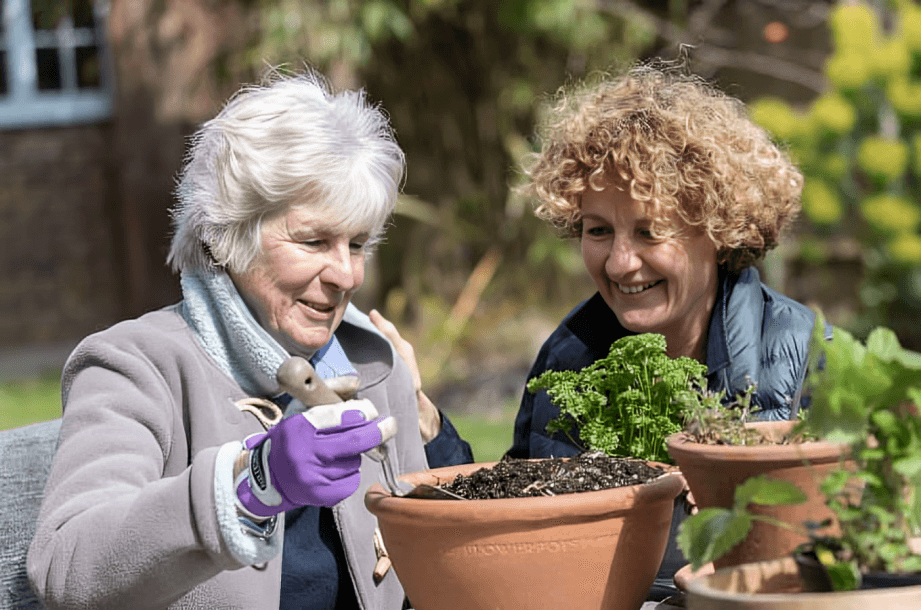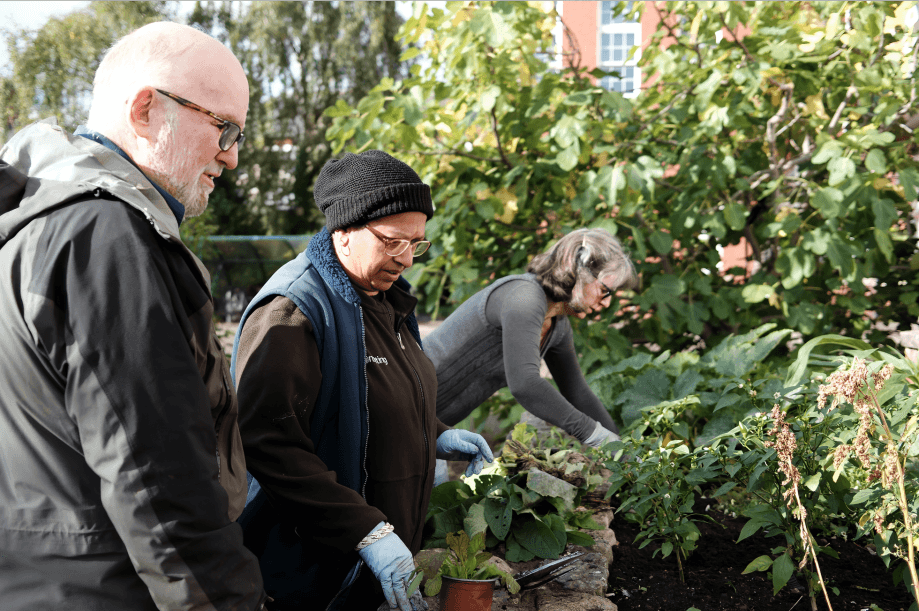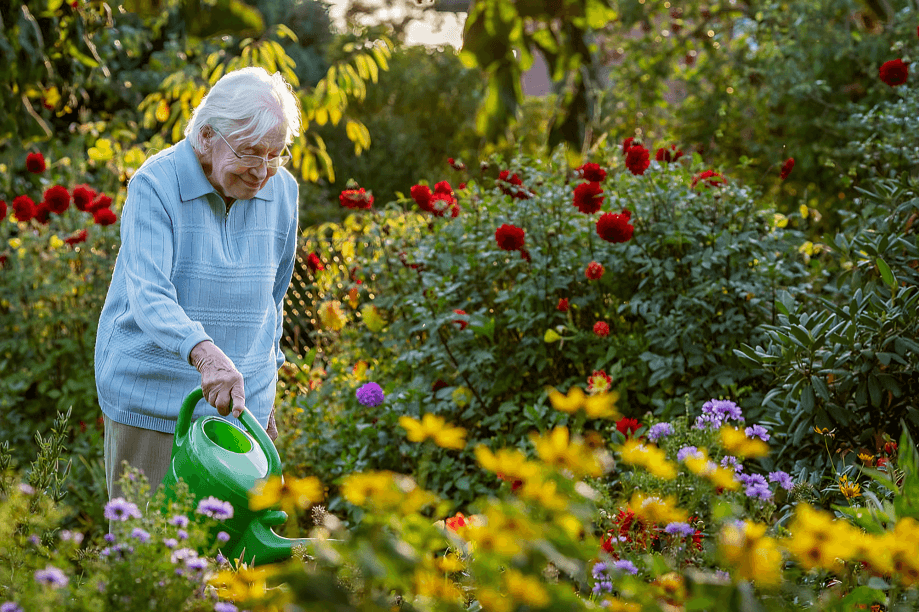
“
The benefits of gardening for elderly wellness extend far beyond planting flowers or vegetables. Gardening promotes physical activity, mental clarity, emotional satisfaction, and a stronger sense of purpose among older adults. Spending time with nature can help seniors reconnect with themselves, reduce feelings of loneliness, and even encourage social bonding. 1
1
”
Dr. Benjamin Rush, a signer of the U.S. Declaration of Independence, believed gardening had healing effects on mental illness, recognizing nature’s ability to calm and restore troubled minds.1
Gardening increases physical activity among seniors without overwhelming their joints, promoting better heart health and stronger muscles through daily motions like digging, watering, and gentle bending. 2

Regular gardening enhances hand strength and coordination, which is especially helpful for elderly people managing arthritis or recovering from strokes, as repetitive movement builds dexterity over time.
Being surrounded by plants has been shown to reduce cortisol levels in older adults, easing stress and promoting calmness, leading to a more balanced emotional state and better quality of life. 3
Time spent in the garden can help elderly individuals sleep more soundly, as exposure to sunlight supports natural circadian rhythms and physical exertion fosters restful and deeper sleep patterns. 4
Exposure to natural sunlight while gardening boosts vitamin D levels in seniors, improving calcium absorption, strengthening bones, and reducing the risk of falls and fractures linked with osteoporosis. 5
Gardening can enhance respiratory function in older adults by encouraging time in fresh outdoor air, especially when working in green spaces filled with oxygen-rich plants and trees. 6
Seniors who garden often report lower levels of anxiety and depression, as tending to plants provides a calming daily routine and a sense of mastery and responsibility that lifts emotional well-being. 7
Cultivating plants gives elderly people a renewed sense of purpose, allowing them to nurture life, set goals, and celebrate small victories—creating a powerful sense of meaning in their daily activities. 8

Gardening creates a peaceful environment that allows seniors to meditate, reflect, and find emotional balance, acting as a natural therapy for those managing grief, trauma, or chronic health conditions.
Working with soil introduces beneficial bacteria like Mycobacterium vaccae, which has been found to enhance mood by increasing serotonin levels in the brain, functioning similarly to antidepressants. 9
Garden maintenance builds endurance and self-reliance in the elderly, empowering them to remain active participants in their care and helping to maintain their independence for as long as possible. 10
The act of nurturing plants helps older adults shift focus away from personal discomforts or worries, providing mental distraction that reduces chronic pain perception and enhances positive coping skills. 11
Seniors who garden regularly tend to have stronger immune systems, partly due to increased outdoor activity, which may strengthen natural defenses through low-level microbial exposure. 12
Designing and decorating garden spaces allows elderly individuals to express creativity and personality, promoting emotional satisfaction, confidence, and a joyful connection to their living environment. 13

Gardening in group settings—such as horticultural therapy programs—has been shown to improve cognitive skills, reduce agitation, and elevate mood in elderly people living in assisted-care or nursing home facilities.
Having a daily gardening task, no matter how small, can improve time orientation in seniors with mild memory loss by giving structure and a sense of normalcy to their day. 14
Gardening helps seniors focus on life’s cycles and beauty, reinforcing a connection with nature that fosters resilience, acceptance, and a grounded outlook on aging and mortality. 15
Working in gardens reduces reliance on technology and screens, offering a tactile, immersive experience that refreshes the mind and supports mental clarity in the digital age. 16
Inspired by ancient thinkers like Confucius, who taught harmony with nature, modern wellness programs now integrate gardening for elderly wellness to cultivate joy, health, and spiritual balance in later life. 17


